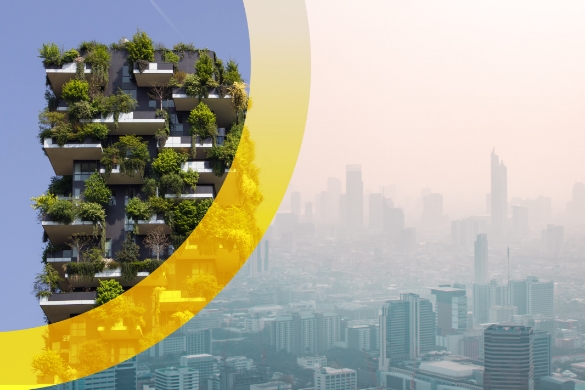Clean and green
Is this how new forms of coexistence are emerging, or is it the beginning of seamless surveillance? The promise sounds tempting - quiet, climate-neutral cities with lots of greenery and good air, with homes that consume little energy, are perfectly adapted to the needs of their inhabitants, and offer optimal jobs and nutrition. Cars drive, if at all, electrically and autonomously. Garbage is silently and invisibly removed and fully recycled. That's the vision.
Smooth and perfect
Everything people need will be within a 15-minute walk - jobs, leisure facilities, schools, daycare centers and shopping centers. The idea is that this is made possible by enormous technological advances. A city that functions smoothly and perfectly, while in the background large IT corporations secure the processes - and the data. A vision that has long since become reality in numerous countries. With very different results.
Oriented to the common good?
It is still questionable how a humanistic attitude and environmental compatibility can be implemented in these concepts. For example, who owns the data on whose processing the infrastructure of cities is based? How should they be used: commercially or oriented toward the common good? Who will guarantee the privacy of residents in the long term? If seamless surveillance of everyday life is what makes this everyday life possible in the first place - won't it also be used to "control" the city's residents?
Smart city - just hype?
Smart cities have long existed, and dozens of megaprojects have already been implemented or are in the planning stage. On the African continent, large investment companies and IT corporations are enticing people with perfectly planned metropolises that are to be realized on the periphery of existing cities. The targeted residents: aspiring middle classes and those who already have sufficient capital.
So is the smart city just hype? It is a concept for which millions in subsidies are being offered, so that cities are now competing for the best possible places in the nationwide rankings. Countless cities and communities in Europe want to operate more sustainably and cost-effectively in this way. But who really benefits from this?
Gert Scobel discusses with his guests
How can existing cities become more "human," more liveable and more livable again? What alternative concepts are there that will keep cities attractive and vibrant in the future? If smart cities represent a livable utopia, how can the dystopian consequences be avoided?
Guests:
Anke Strüver is a professor of urban geography at the University of Graz. She researches critical perspectives on digitalization in cities and questions the promise that the "smart city" will provide a sustainable future with a high quality of life for all.
Architect Tatjana Schneider heads the Institute for History and Theory of Architecture and the City (GTAS) at the Technical University of Braunschweig. She researches socio-cultural and political aspects of urban planning and argues for more diversity and "disorder" to design livable cities for all in the future.
Leonard Dobusch teaches as an economist at the University of Innsbruck. His research focuses on innovation, standardization and private regulation. He finds that cities can only be smart if their technologies are used with "an openness oriented towards digital commons."
Broadcast date: 03/23/2023, from 9:00 p.m. to 10:00 p.m.
>>> Link to the scobel - series
